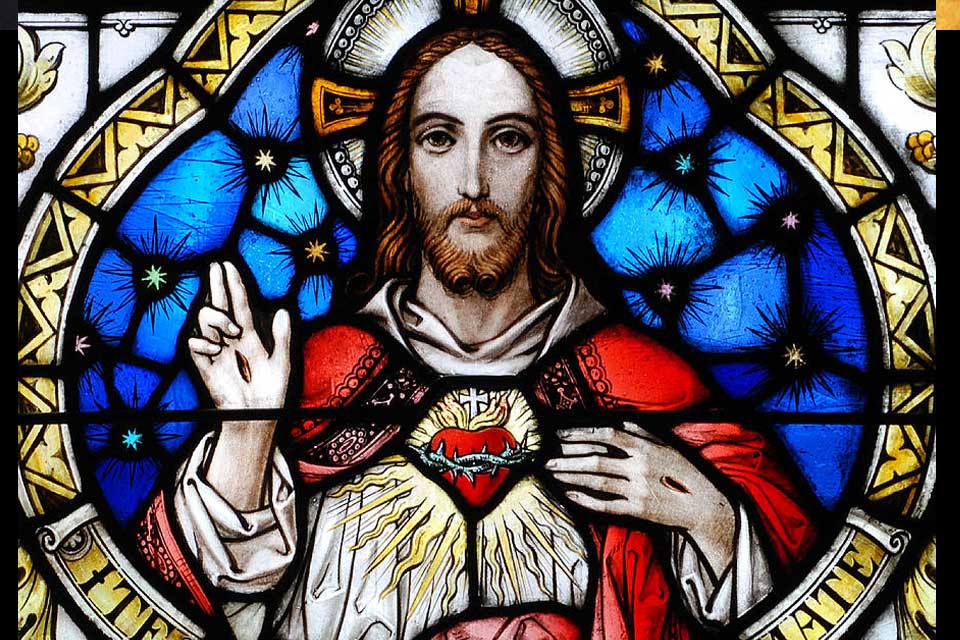Following is the prepared text from Bishop Olmsted’s homily for the 21st Sunday in Ordinary Time.
August 23, 2020
“You are the Christ, the Son of the living God.” What amazement must have filled Simon Peter’s heart when he heard himself say these words about Jesus. He had not planned to do so. He was still thinking about Jesus’ first question, “Who do people say that the Son of Man is?” Yet, when Jesus asked a second question: “But who do you say that I am?” He found himself saying, “You are the Christ, the Son of the living God.” Simon Peter was elated to say this. His eyes began to fill with tears when he realized not only what His lips pronounced but even more what His heart was thrilled to affirm. Still, where did those words come from?” After all, this was impetuous Simon, the fisherman! The man who usually found himself blurting things out that he quickly regretted. He treasured Jesus’ call to follow Him, and he was looking forward to the coming of the promised Messiah, the Christ; however, Simon son of Jonah was not a scholar or rabbi. So where did this remarkable confession of faith come from?
It was a gift of the Father. Faith, after all, comes from Him. We cannot make ourselves believe in God; but we can receive faith as a gift, embrace it with gratitude, and rejoice in praise. That was Simon Peter at this moment. And somehow, he knew that not only were these words an amazing statement about Jesus the teacher from Nazareth who had called him. They were words that came from a source far more mysterious and wonderful than He could imagine. How delighted Simon must have been when Jesus said to him (Mt 16:17f),
“Blessed are you, Simon son of Jonah. For flesh and blood has not revealed this to you, but my heavenly Father. And so I say to you, you are Peter, and upon this rock I will build my Church, and the gates of the netherworld shall not prevail against it. I will give you the keys to the Kingdom of heaven. Whatever you bind on earth shall be bound in heaven; and whatever you loose on earth shall be loosed in heaven.”
“I say to you, you are Peter,” Those words of Jesus to Simon surely filled his heart with questions, but at the same time with awe and wonder. And not only Simon would have been surprised by them, so would the other Apostles. For this is the only time, throughout Jesus’ public ministry that He gave a new name to any of His disciples. And it was apparent that Jesus was doing more than just giving Simon a new name; He was conferring on him a threefold mission.
Jesus used three evocative metaphors to make evident Simon Peter’s mission in His Church:
First, Peter will be a “rock” on which Jesus will build His Church: “You are Peter (Rock) and on this ‘Rock’ I will build my Church.” Simon was now to be a building block for Jesus to use for His Church.
The second image as keys… Peter received “the keys of the Kingdom of Heaven,” that is the power and duty to open and to close, determining who could enter or who must be kept out.
Third, Peter will “bind or loose” in Jesus’ Name, that is, he will establish or prohibit whatever he is required for the life and mission of Christ’s Body the Church. From that day forward, Simon Peter began to exercise a role of leadership among the Twelve that was evident at once and that became more pronounced after Jesus rose from the dead.
Throughout the Acts of the Apostles, it is Peter who takes the lead among the Twelve and the growing community of disciples. We are told of many embarrassing mistakes that Peter made; but, each time, Jesus came to his aid with His mercy, restored the repentant Peter to fullness of grace; and then, Peter continued to fulfill His mission as the rock on which Jesus was building the Church.
Never did Peter tire of teaching others or of saying in prayer “You are the Christ, the
Son of the Living God.” With each day, Peter’s gratitude for his faith grew as did his enthusiasm for witnessing to the Risen and living Jesus Christ.
At the end of his earthly journey, Peter was so grateful yet so deeply aware of his unworthiness to offer his life as a martyr for Jesus that he asked to be crucified upside down. This also served as a sign of how the Risen Lord can turn every life around and make repentant sinners like us, faithful witnesses of the Risen Lord.
When Peter died as a martyr in Rome, a Successor named Linus was chosen to continue the Petrine mission in the Church; then, he was succeeded by Popes Cletus and Clement and so forth, down to the present day with the ministry of Pope Francis. However, before Peter died, he wrote two Letters that are found in the New Testament. In the first one, using the metaphor of rock Peter wrote (1 Ptr. 2:5ff), “like living stones, let yourselves be built into a spiritual house to… offer spiritual sacrifices acceptable to God through Jesus Christ.”
In St. Paul’s letter to the Romans, our Second Reading today, perhaps Paul was thinking of both Peter and himself when he wrote (Rom 11:33), “Oh, the depth of the riches and wisdom and knowledge of God! How inscrutable are His judgments and how unsearchable His ways!” Through the faithful witness of Peter and Paul, and other saints down through the ages, we discover what the human heart most deeply desires: to know and love Jesus Christ as Lord and to say with Peter, “You are the Christ, the Son of the Living God.”





